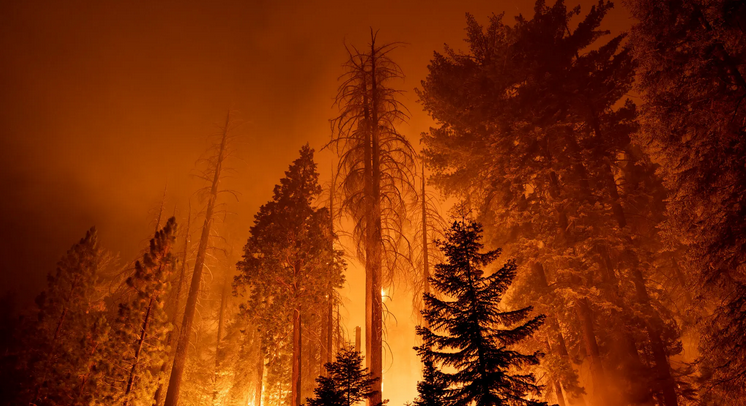Scientists have said that the hottest summer days in the Sierra Nevada in California will greatly increase the risk that wildfires will ignite or spread and that as the planet keeps warming the risks will increase even more.
Wildfires are increasing in size and intensity in the Western United States, and wildfire seasons are growing longer. California has suffered in recent years, including last summer, when the Sierra Nevada experienced several large fires. One, the Dixie Fire, burned nearly a million acres and was the largest single fire in the state’s history.
Over the past 20 years, the researchers found, a 1 degree Celsius (1.8 degree Fahrenheit) increase in mean summer temperature increased the risk of a fire starting on a given day — either by human activity or a lightning strike — by 19 to 22 percent, and increased the burned area by 22 to 25 percent. The research, which examined daily temperatures and data from nearly 450 Sierra Nevada fires from 2001 to 2020 and projected the analysis into the future, found that the number of fires could increase by about 20 percent or more by the 2040s, and that the total burned area could increase by about 25 percent or more.
The findings, according to Aurora A. Gutierrez, a researcher at the University of California Irvine and the lead author of a paper describing the work in the journal Science Advances show how short events like heat waves impact fires. “We were able to quantify that” she said. As for the projections over the next two decades, she said, “We are getting hotter days and that’s why the risk of fires is increasing into the future.” Recent research has suggested that heat and dryness associated with global warming are major reasons for the increase in bigger and stronger fires.
The findings of the new study are generally in keeping with that earlier research, but there is an important difference. Most earlier studies looked at temperature and other data aggregated over monthly to annual time scales.
The new research looked at daily data. Jim Randerson, the senior author on the paper and a UC Irvine professor of earth systems science, said that “what makes this novel is that we were trying to identify the role of individual temperature extremes on individual dates.
Dr. Randerson gave an example of why extremely hot weather can lead to more, and more easily spreading, fires. “If it’s a normal day, say 80 degrees Fahrenheit, and you accidentally create a spark and there’s an ignition, you can probably stomp on it, or local fire agencies can come and put it out,” he said.
The vegetation still contains a significant amount of moisture that the heat from the fire must evaporate first. That slows the spread of flames. John Abatzoglou, who studies the influence of climate change on wildfires at the University of California, Merced, said the work “adds to the growing scientific literature of climate-driven fire potential in forests of the West.”
